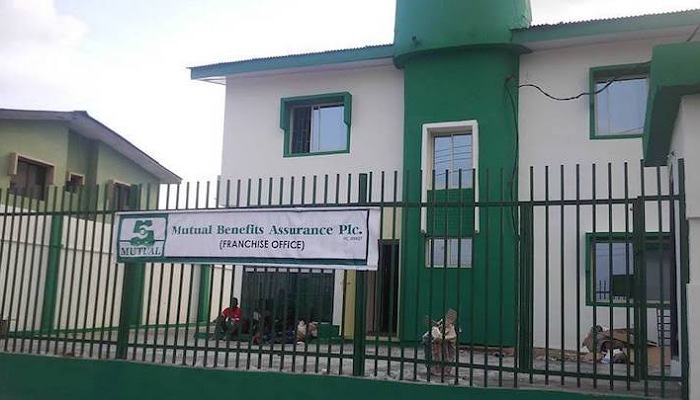In the realm of emerging market derivatives, there has been a significant surge in growth in recent years. However, these derivatives still represent a mere one per cent of the overall assumed countries involved in this market.
Spot markets in emerging economies, in terms of size, differ greatly from one another, both absolutely and relative to one another.
Thus, in comparison to more mature markets, the outstanding notional value of derivatives about the market capitalization of the underlying assets remains relatively small in most emerging economies.
Market operators are of the view that Exchange Traded Derivatives (ETDs) Market holds immense potential for economic growth and development in Nigeria.
This, therefore, means that by providing enhanced risk management tools, increased liquidity, and improved price discovery, derivatives can attract domestic and foreign investors, boost market sophistication, and promote overall economic stability.
A thousand-mile journey begins with a single step, and a thousand-mile journey begins where one stands, according to an ancient proverb.
This adage applies to Nigerian Exchange Limited’s experience in 2014, when the International Securities Consultancy (ISC) was engaged to assist with the assessment, benchmarking, infrastructure requirements, and sequencing of potential risk management products for the Nigerian capital markets, based on the international experience of developed and emerging capital markets.
The outcome of this feasibility study revealed that the Nigerian capital market was ripe for the Exchange-Traded Derivatives (ETD) Market. Consequently, the Exchange engaged relevant market stakeholders and developed a roadmap for the introduction and development of the ETD market in Nigeria.
Furthermore, the Exchange identified and provided the required market infrastructures needed for the development of a thriving derivatives market including a robust regulatory framework, technology infrastructure, and capacity development.
In 2019, NGX Derivatives Trading Rules were approved by the Securities and Exchange Commission (SEC). Also, the Federal Government of Nigeria made provision for the Netting Law in the new Companies and Allied Matters Act (CAMA) 2020, which provided the legal basis for the trading of derivatives and operation of a Central Counterparty (CCP) System in Nigeria.
Sequel to the provision of the netting law, Nigeria’s premier Central Counterparty (CCP) and Clearing House, NG Clearing, was licensed by the SEC in 2021 and the integration between NGX and the CCP was completed in 2022.
This was done to further enhance confidence in the NGX Derivative Market segment, as the clearing infrastructure is of international standards, capable of reducing systemic risk and enhancing market transparency.
To further elevate market spirits, on April 14, 2022, NGX introduced West Africa’s first Exchange-Traded Derivatives Market, commencing with Equity Index Futures Contracts based on the highly regarded and widely tracked NGX 30 Index and NGX Pension Index.
As of April to May 2023, the Exchange has already listed ten contracts, with a trading volume of 9 contracts valued at N16.48 million. These figures vividly demonstrate investors’ appetite and preparedness for this innovative product.
However, industry analysts have noted that this initial uptake of NGX derivatives is reminiscent of other developing markets, such as the Nairobi Securities Exchange derivatives market, the Thailand Futures Exchange, and Bosa Istanbul.
For instance, the Nairobi Securities Exchange derivatives market, launched on July 4, 2019, experienced an average weekly trading volume of two (2) equity index futures contracts.
Nevertheless, the market gained momentum later on, thanks to the activities in Single Stock Futures, which saw an average of 140 contracts traded weekly.
The NGX firmly believes that the derivatives market will be deepened by introducing a broader range of product classes and intensifying investor education efforts.
Speaking at a capacity building workshop of the CFA Society, South Africa, which was held virtually in April with the theme “Building and Scaling Derivatives Markets in Africa”, the Divisional Head, Capital Markets at NGX, Jude Chiemeka, said that enabling the development of the derivatives markets on the African continent requires more investor education and capacity building.
- “Our markets are still in the nascent stages and investors need to be aware of the risks and opportunities that are inherent to derivatives. Stakeholder engagement and collaboration are also needed to catalyze growth.
- At NGX, we have organized various capacity-building sessions in partnership with major stakeholders in the capital market to educate investors on the intricacies of the ETDs market. We also continue to drive conversations and engage regularly through forums and other marketplace development initiatives”, Chiemeka said.
Since its inception, the NGX Derivatives market has enjoyed the support and activities of market participants. Currently, five (5) Trading License Holders, including Meristem Stockbrokers Limited, CardinalStone Securities Limited, APT Securities and Funds Limited, Stanbic IBTC Stockbrokers Limited, and PAC Securities Limited, have been accredited as Derivatives Trading members.
Furthermore, the CCP, NG Clearing, has accredited and onboarded two (2) clearing members, Access Bank and Zenith Bank.
Moreover, the Exchange has developed a seamless accreditation process for Trading License Holders to participate in this market; interested firms must meet the requirements outlined in the Rulebook of Nigerian Exchange’s Derivatives Market[1] including the existing minimum capital requirement of Shareholders’ Funds of ₦300m and Net Liquid Capital of ₦200m.
Others include the availability of required human capital resources (Trader/Dealer, Compliance Officer, Settlement Officer, and Risk Manager/Officer) with robust operational processes as well as required technology to support derivatives trading.
Also, prospective derivatives members are expected to open clearing accounts (Margin/Collateral Account, Settlement Account, and Operational Account) with any of the accredited Clearing Members in Nigeria.
It is worth noting that the derivatives market has significantly increased in value and importance to become a strong pillar of the global financial system that enhances improved access to finance, price discovery, and transfer of market risk.
Despite the unprecedented challenges facing the global financial market, derivatives contracts have continued to serve their role well in managing market and economic risk. The market has experienced tremendous growth in trade volume and value. In 2022, according to the Futures Industry Association (FIA), the total volume of trades in Exchange-traded derivatives reached 83.85 billion[2] contracts, an increase of 34% from the previous year.
The open interest stood at 1.09 billion contracts, up 0.9% from 1.076 billion contracts at the year-end of 2021. This is the fifth year in a row that global exchange-traded derivatives markets have exceeded the previous year’s total trading activity.
This market outlook reinforces NGX’s belief in the thriving future of Nigeria’s Exchange-Traded Derivatives market.
- “NGX is poised to accelerate the development of the ETDs Market in Nigeria and is committed to rolling out other derivatives contracts based on market appetites including Single Stock Futures, Interest Rate Futures, Bond Futures, Currency Futures, etc.
- The SEC has approved five (5) NGX single stock futures contracts, the selection of these contracts were based on their market capitalization and turnover within the last few years. At NGX, we are confident that the introduction of Single Stock Futures contracts will drive the desired liquidity in this market segment as seen in other derivatives market jurisdictions including Kenya, Thailand, India, South Africa, etc.
- The Exchange is assiduously working on the technology implementation and systems integration that will allow for seamless trading and clearing of the contracts”, Chiemeka said.
The derivatives market will potentially address the price volatility risk management needs of market participants such as Pension Fund Administrators, Fund Managers, Corporate Treasuries, and Trading License Holders.
Also, it will provide investors and other market players, with the necessary tools for asset allocation, and cost management for effective portfolio management.
NB. NGX Equity Index Futures are standardized derivatives contracts that create an obligation for the contract holder to purchase or sell an NGX Equity Indices on a specified date at a predetermined price.
NGX Equity Index Futures are cash-settled contracts traded on the NGX X-Stream Derivatives Trading Platform or any other system designated by the Nigerian Exchange Limited. NGX Equity Index Futures can be used by Fund Managers, Portfolio Managers, Retails, and other corporates to hedge price volatility risk on their NGX Equity Indices and other equities investments.




















